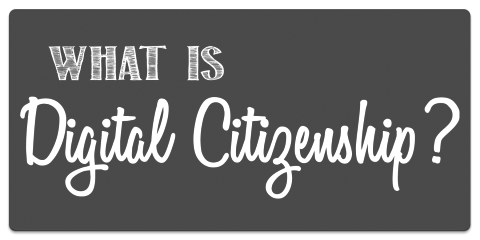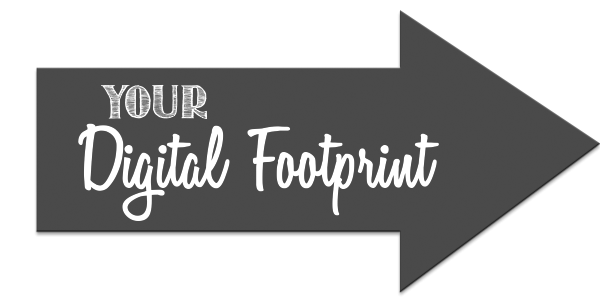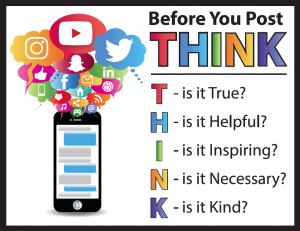Digital Citizenship Expectations at Cambie

Cambie students are encouraged to use technology to communicate, to clarify and deepen their learning; to explore, innovate and create new possibilities and expand their digital literacy. A digitally literate person knows how to use a wide variety of software, applications and computer and online platforms to learn, communicate, manage, organize, and create - that is, they know more than how to download music, scroll through social media and play games.
When using technology in the classroom, please be sure you have discussed your ideas and uses with your teacher and received permission. Learning how to access, evaluate and assess the ever expanding volume of information available on the Internet are skills that need to be practiced and taught. This requires critical thinking skills and being thoughtful about what you are reading, listening to and viewing online. This also involves self-regulation and being a good digital citizen.
It is important to remember that the Internet is forever, and your digital footprint can be followed. That is, once you post, share, like or re-post something online, it is public information. This is also true of closed groups, Snapchat groups, text messages, and all forms of communication online, regardless of "privacy settings".

At Cambie, being a responsible digital citizen means being respectful and thoughtful online. Below are our expectations for all members of our school community:
1. Do NOT post or share anything online that is unsafe, violent, hurtful, mocking, unkind or intolerant. An online image or comment can be hurtful and damaging because it can be read or viewed over and over again, and others can repost it or take a screenshot and share it widely. Some people simply do not think before they post or comment. Others hide behind their computer or smartphone and post images or comments they would never say directly to others. Don’t be tempted; THINK about what you are saying before you post or send, and ask yourself, “Is this image or comment positive?", "Would I say this to someone in person?” or "Would I want my parents to see this or read this?" Even online "teasing" is not okay.
Online harassment, threats or bullying in any form are unwelcome at Cambie and will be investigated by school administration, and if necessary, the RCMP.
If something concerning is happening online to yourself or others, this is not OK. Please speak to your counsellor or to one of our vice principals or principal. If you know that this is happening to someone else, DO NOT BE A BYSTANDER - be a stand-up person and do the right thing and report it.
2. Do NOT post or share anything about other people or created by other people without permission. It is not acceptable to post or share video, images, or comments of someone online without their permission, even in a closed group or chat group. If you receive or are aware of teasing, negative, mocking, or unsafe images or comments being shared, our expectation is that you immediately report this to an adult. Remember also that all online content was created by someone, and that person owns their content. This includes articles (and ANY portion of articles), photos, video, memes, reports, blogs, and anything else online that wasn’t created by you. Be aware of copyright laws (intellectual property) and our school's academic honesty guidelines. Request permission before you share and be sure to cite accurately if you reuse or repost an image or an article or sections/passages/ideas from an article authored by others.
3. Be a critical thinker - Do NOT believe everything you see or read online. Not everything online is true. Not every entity online is who or what they claim to be. In fact, there’s a lot online that is inaccurate or untrue or fake. Before believing (or sharing), pause to think, dig deeper, search for other sources and ask questions. If something seems hard to believe or "too good to be true" it may very likely be a scam. Be very careful about sharing any personal information online - this includes your identity, address, phone number, banking information, Social Insurance Number, etc. and never do this without talking to a trusted adult or parent first.
 4. Do NOT post anything that you do not want to last forever. Before you comment, post, share or like anything online, ask yourself, “Am I ok if this is never deleted?” and "Would I be okay if a parent, my school or my employer saw this?" Once something is out there online, it is out there for good. There is no delete button or eraser for the Internet - everything can be recovered, even if you "delete" it. Often, "anonymous" posts can even be traced back to their originator.
4. Do NOT post anything that you do not want to last forever. Before you comment, post, share or like anything online, ask yourself, “Am I ok if this is never deleted?” and "Would I be okay if a parent, my school or my employer saw this?" Once something is out there online, it is out there for good. There is no delete button or eraser for the Internet - everything can be recovered, even if you "delete" it. Often, "anonymous" posts can even be traced back to their originator.
5. Do NOT spend all of your time online. The Internet is an amazing place with an infinite variety of things to discover. However, as with all things in life, moderation is important - don’t just live a "virtual life"! Exploring the real world with real people, real travel, real experiences, and face to face human interaction provides a wealth of valuable life experiences the online world will never fully replicate.
Having problems online? Seeing it happen to someone else? This is NOT OK.
Talk to a trusted adult. Tell a vice principal or principal at Cambie. Read the tips on the chart attached below.
